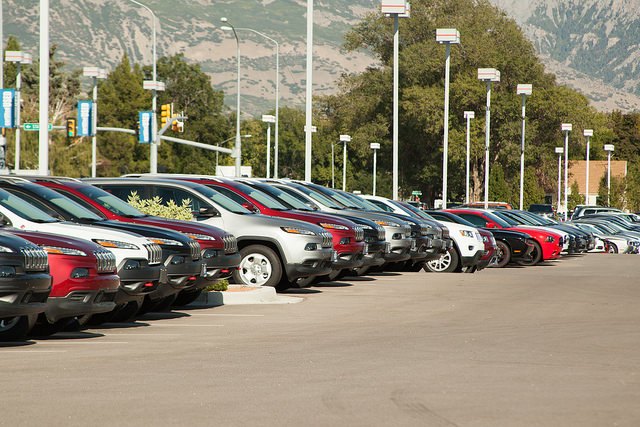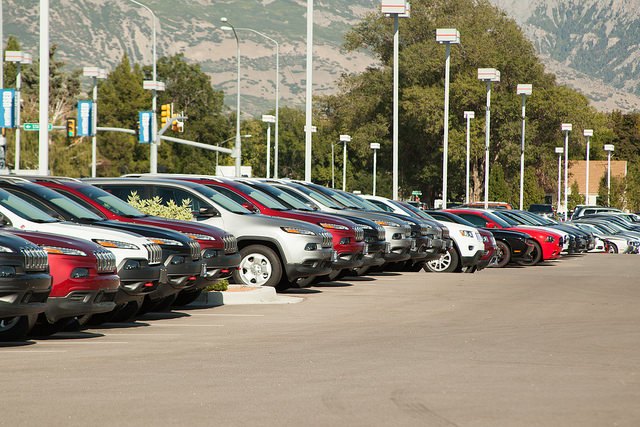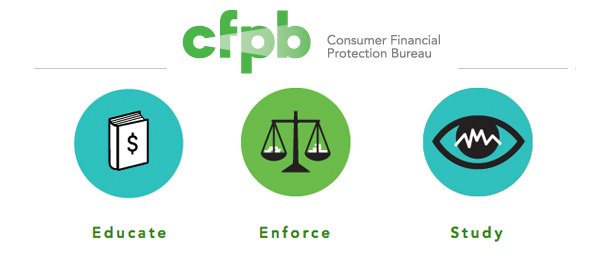#lending
Subprime Car Buyers Haven't Defaulted This Much Since '96
Grunge was on its way out the door, Pepsi aficionado Bob Dole was challenging William Jefferson Clinton for the keys to the White House, and the Ford Contour was still a relatively new sight on American roads.
That was the last time this many U.S. car owners fell way, way behind on their subprime auto loans.
Bark's Bites: Subprime Lending Is Even More Bizarre Than You Imagined
“We’re dirty, yeah, but so are the dealers. We’re all dirty in this business.”
The petite, honest-faced young lady sitting across from me at my lunch table doesn’t look like a predator. To be fair, she isn’t. She just works for a company that’s one of the biggest subprime lenders in the country, with offices in several states. By the time a dealer calls them for a loan, they’ve already tried every traditional bank and credit union in their Rolodex.
And in exchange for a delicious burrito, she agreed to meet with me and pull back the kimono on the subprime auto lending business in the United States, a business which many in the financial sector believe to be the next big bubble.
I have a lot of questions, and she’s more than willing to answer them. I ask what sorts of credit scores they’ll approve.
“We can pretty much approve any credit score. I just approved a 413 beacon score the other day. Of course, it was a 25 percent loan. Credit is really just one piece of the puzzle,” Elizabeth* (not her real name) explains to me. “Sure, we pull TransUnion and Equifax, but we’re also looking at their obligations versus their verifiable income. Medical bills don’t count. It’s just rent plus whatever else is on their credit report.”
“Sure,” I say. “That makes sense.”
“Of course,” she continues between small bites of burrito, “if they’ve just stopped paying a bill, something other than another car loan, we don’t count that bill as part of their monthly obligations. Nobody pays student loans. They’ll have like five or six loans and won’t have paid a damn dime in months. So we don’t worry about those.”
Hang on. It gets weirder. And better.
Lenders Snatch Back the Piggy Bank After Taking a Hit on Auto Loans
April was the fourth consecutive month to see U.S. auto sales underperform compared to 2016, leading many to speculate that the long-awaited slump has finally arrived. New car sales aren’t the only thing slipping, as used vehicle values — diminished by a flood of off-lease stock and new car incentives — is on the same downward trajectory.
At the same time, the country’s biggest auto lenders have taken a look around and do not like what they see. No bank wants to be stuck with a low-value repossessed car, so purse strings are tightening across the United States. Securing that next loan just became harder.
Of course, this is the last thing any automaker wants to hear.
Captives Dominating Auto Financing As Banks Resort To Risky Loans
OEM captive financing arms are increasing their share of new car loans, with banks resorting to underwriting riskier loans in the used car market and to less credit-worthy buyers.
Subprime Lending Still On The Rise As GM Financial Grows Prime Lending Operations
Subprime auto financing continues to grow, and while one analyst at Moody’s says that banks are largely staying out of the subprime space, overall lending continued to rise, with retail banks seeing some of the strongest growth. This expansion in lending, particularly subprime, was attributed as a key driver in auto sales. SNL cited forecasts for a SAAR of between 16 and 16.7 million in 2014, up from 15.5 million in 2013.
U.S. DoJ, Consumer Financial Protection Bureau Investigate Toyota, Honda, Other Automakers' Credit Arms For Lending Bias
According to regulatory filings by Toyota Motor Credit Corp., the giant automaker’s car financing arm, and American Honda Finance Corp., which fills a similar role for Honda, the United States Consumer Financial Protection Bureau and the Department of Justice are investigating major auto manufacturers for possible lending bias based on race, which would be a violation of the 1974 Equal Credit Opportunity Act. According to Bloomberg, the agencies are looking into how loans that the automakers’ credit companies provide to auto dealers are priced. Bloomberg reports that as many as seven car companies have been asked for data that may be related to the borrowers’ races and interest rates charged. Both government agencies declined to comment on the matter.
Question Of The Day: When Financing A Car, What Information Should Be Fair Game?
Your personal information is valuable.
When I liquidated vehicles for Capital One, we typically examined over 14,000 variables before lending out our money to a customer.
Any customer. A credit card. An automobile. A commercial loan. It didn’t matter. We needed to get to know the economics of you first.
All of the low rates and big profits were dependent on buying your personal information, and then crafting decision models and metrics to determine your personal risk.
Our success in auto finance generated low rates for our customers and low delinquencies for our investors. But they both could have been far lower.
Quote Of The Day: You Can Trust Your Dealership After All Edition
Throughout the debate on Wall Street reform, I have urged members of the Senate to fight the efforts of special interests and their lobbyists to weaken consumer protections. An amendment that the Senate will soon consider would do exactly that, undermining strong consumer protections with a special loophole for auto dealer-lenders. This amendment would carve out a special exemption for these lenders that would allow them to inflate rates, insert hidden fees into the fine print of paperwork, and include expensive add-ons that catch purchasers by surprise. This amendment guts provisions that empower consumers with clear information that allows them to make the financial decisions that work best for them and simply encourages misleading sales tactics that hurt American consumers. Unfortunately, countless families – particularly military families – have been the target of these deceptive practices.
This is what president Obama said just six weeks ago about efforts to exclude car dealership financing from consumer protection measures included in the forthcoming Financial Reform bill. With that bill moving towards Obama’s desk, all that stands in the way of its passage are angry dealers who don’t want to be subject to oversight. And despite the tough talk about standing up to financial interests to pass this reform, it seems Obama has caved to America’s auto dealers.



















Recent Comments